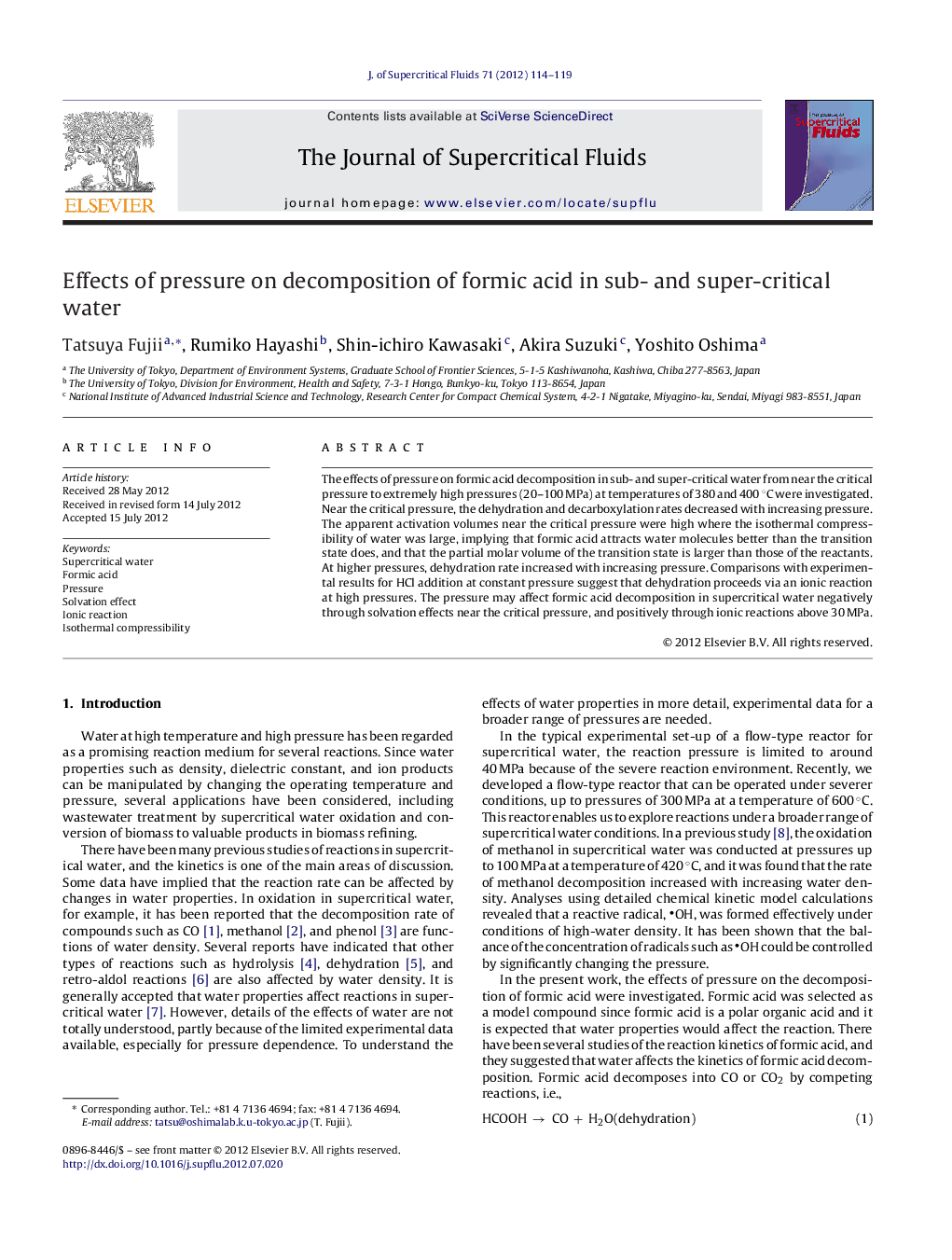| Article ID | Journal | Published Year | Pages | File Type |
|---|---|---|---|---|
| 230994 | The Journal of Supercritical Fluids | 2012 | 6 Pages |
The effects of pressure on formic acid decomposition in sub- and super-critical water from near the critical pressure to extremely high pressures (20–100 MPa) at temperatures of 380 and 400 °C were investigated. Near the critical pressure, the dehydration and decarboxylation rates decreased with increasing pressure. The apparent activation volumes near the critical pressure were high where the isothermal compressibility of water was large, implying that formic acid attracts water molecules better than the transition state does, and that the partial molar volume of the transition state is larger than those of the reactants. At higher pressures, dehydration rate increased with increasing pressure. Comparisons with experimental results for HCl addition at constant pressure suggest that dehydration proceeds via an ionic reaction at high pressures. The pressure may affect formic acid decomposition in supercritical water negatively through solvation effects near the critical pressure, and positively through ionic reactions above 30 MPa.
Graphical abstractFigure optionsDownload full-size imageDownload as PowerPoint slideHighlights► Pressure affects negatively formic acid decomposition near the critical pressure. ► Apparent activation volume is higher at higher isothermal compressibility of water. ► Solvation effect is important for pressure dependence near the critical pressure. ► Pressure affects positively dehydration reaction at high pressure (>30 MPa). ► Reaction order of H+ concentration for dehydration at high pressure was unity.
